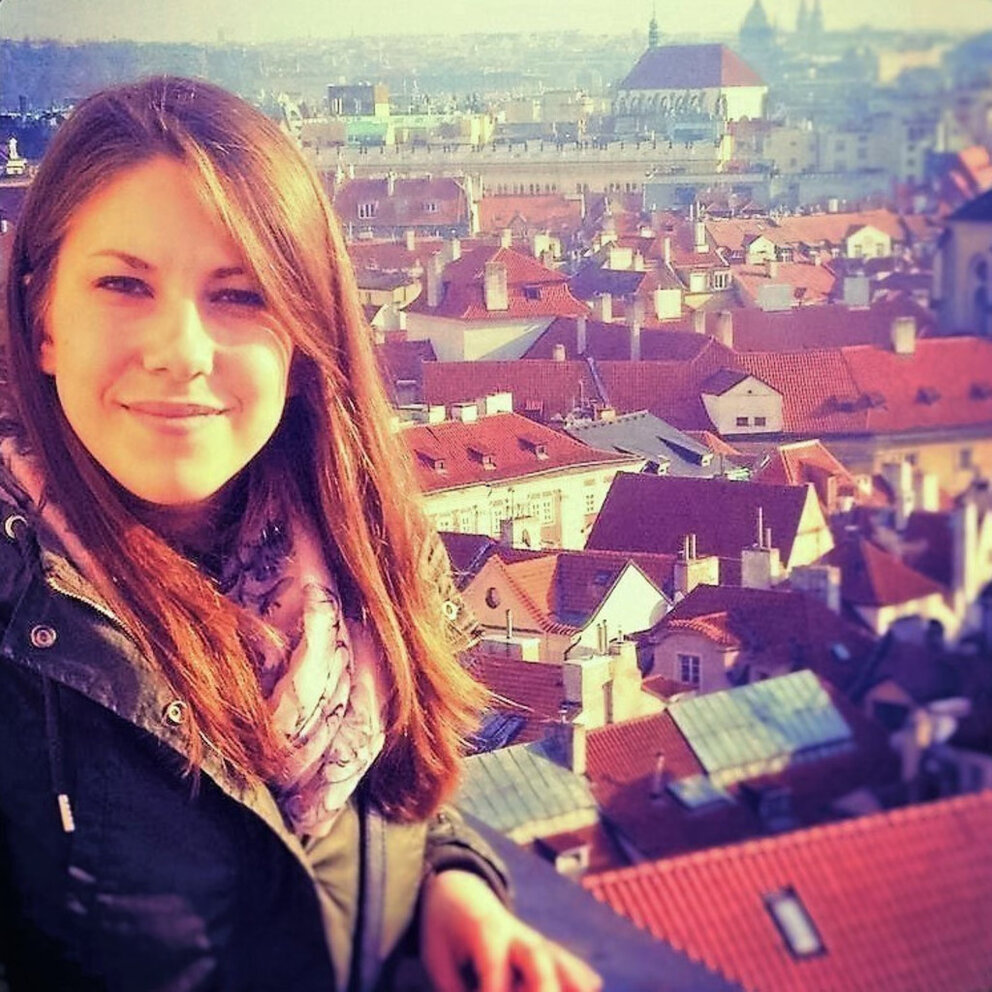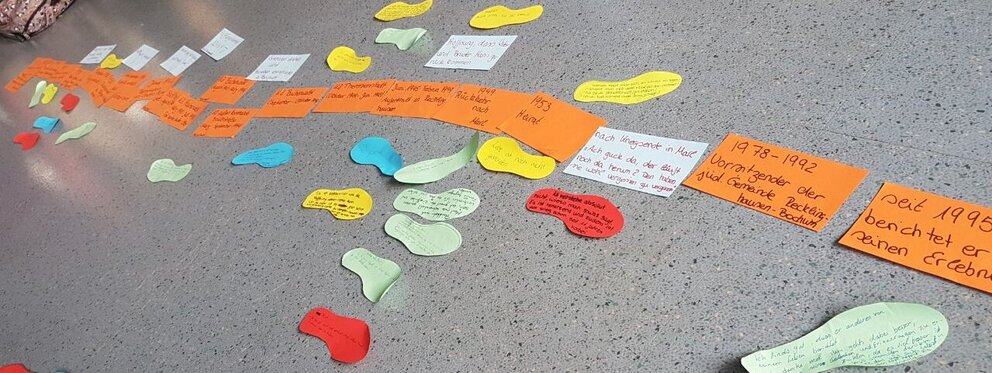
Invite us for a workshop
We experienced the ZWEITZEUGEN workshop days as excellently prepared, profitable, smooth and thoroughly inclusive. The students with visual and learning disabilities were gently introduced to the challenging subject matter and were able to take concrete action in relation to their lives.
First contact
We will be happy to come to you and plan individually for each class and group. Please use the contact form to tell us your wishes. We will contact you and discuss all details.
Preparation
What you should discuss with your class and group: It is important that participants know why we are doing a ZWEITZEUGEN workshop and what we will be talking about. There are different materials for this depending on the age. If you need specific suggestions, we will be happy to help you. In any case, you should inform the parents about our project in advance. Especially in the younger classes it makes sense to prepare the parents so that the children don't come home with unexpected questions to which there are no answers. We will be happy to hold a parents' evening and/or provide you with a template for a letter to parents. You can ask us about this in the closer contact.
Realisation of the workshop
Finally the time has come. ZWEITZEUGEN comes to your school or educational institution. We are usually at your place about 30 minutes before classes start and prepare the room. How we arrange the workshop depends on the individual consultation we agreed upon.
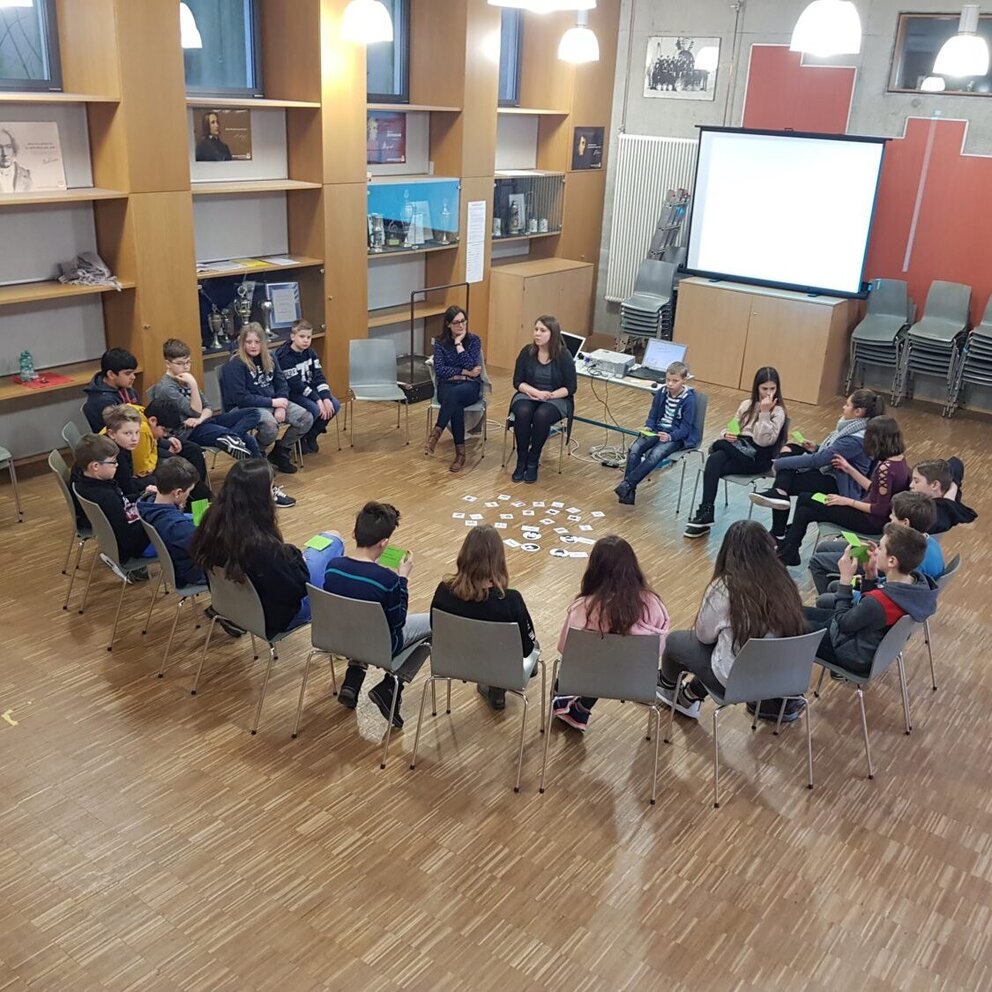
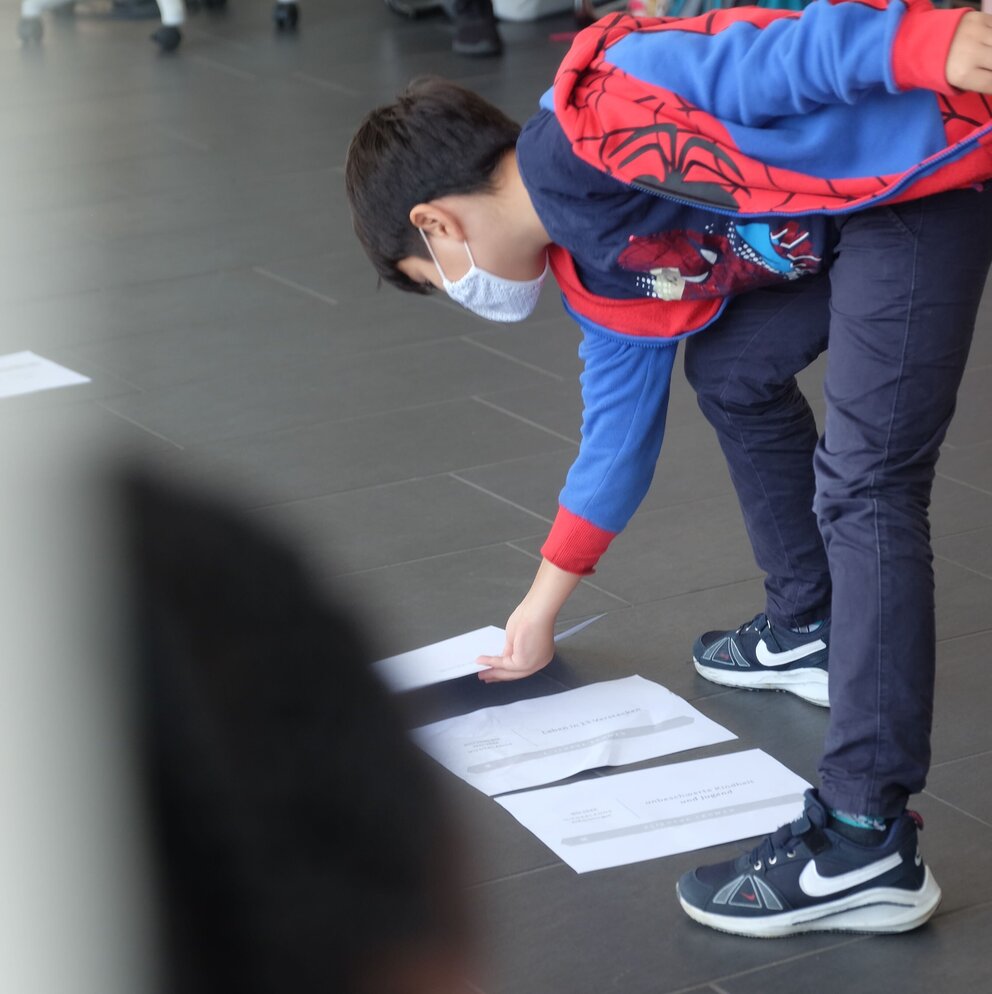
Follow-up
As secondary witnesses, the children and young people can now tell the stories they have heard to their friends and family, but also implement larger projects. It is possible to bring our traveling exhibition to their own city and, accompanied by us as guides, tell the stories to their neighbours, friends or also strangers. For older youths, it is also conceivable to independently organize a trip to a memorial site or to work on videos, photos or other creative works, which we would be happy to present on our website. We will gladly write you an offer for further projects. There are no limits to the ways in which these projects can be carried forward, and we support them with great interest, because that is what the contemporary witnesses want: Young people who are motivated to fight the oblivion.
Being a secondary witness is a big task and a responsibility. In order to not let the (hi)story fall silent, we encourage the children and young people to continue after our workshop.
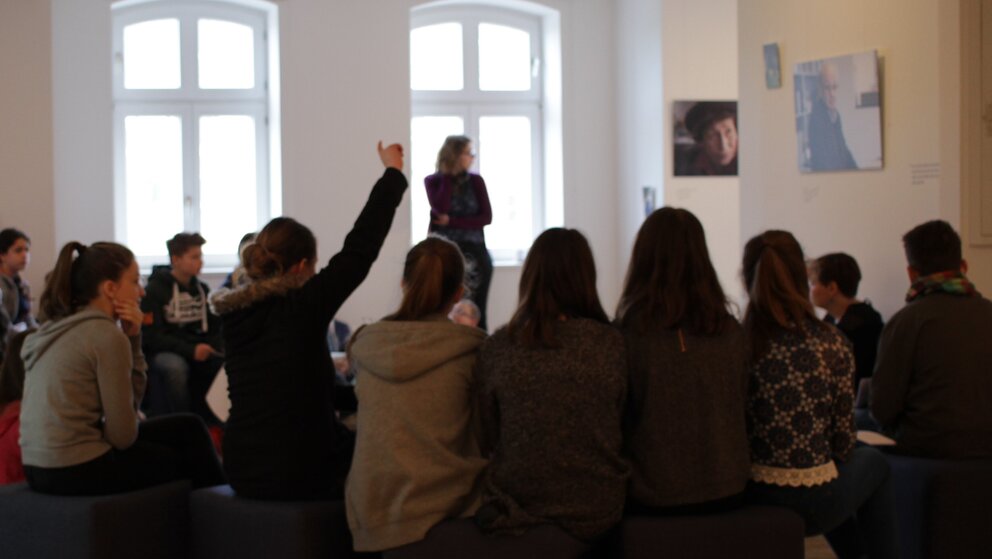
WORKSHOP LEADERS
Our workshop leaders undergo a multi-stage training, during which they participate in two training weekends, where they are trained in historical-political as well as pedagogical and methodological aspects. During several observation sessions and subsequent so-called "team teachings", the trainees, accompanied by experienced workshop leaders, try out the didactic methods of the association and practice telling the survivors' stories.
Recognised body of free youth welfare
According to § 78 SGB VIII ZWEITZEUGEN e.V. is a recognised body of free youth welfare. In the field of youth welfare we operate as defined by § 1 SGB VIII and pursue non-profit goals.
How exactly does a workshop like this work?
Phase 1:
Collecting and organizing prior knowledge
Using the so-called "board race method", the "postcard method" (with quotes from Holocaust witnesses) or a joint brainstorming session, the participants' prior knowledge is collected and sorted. In addition, open questions on the topic are collected and partly already answered. Important terms, often unknown to the participants till then, are explained, e.g. terms like "National Socialism" or "anti-Semitism", various groups persecuted by the National Socialists and/or institutions and organisations founded at that time. Definitions are worked out together with the participants.
Phase 2:
Getting to know the successive persecution on the basis of anti-Jewish laws
Using the method "An ordinary day", a method developed by the Anne Frank Zentrum Berlin and taken up and further developed by us, some of the anti-Jewish laws enacted thousands of times during the period 1933-1945 are introduced. The participants get a first insight into the successive historical persecution of Jews. The method focuses on the question: "How did a normal day of Jews change during the Nazi period?" and "What would these changes mean for you?"
Phase 3:
Getting to know the life story of a contemporary witness
Telling the life story of a contemporary witness to the Holocaust is the "heart" of every ZWEITZEUGEN educational project. The workshop leader sensitively tells the story of his or her own or the association's encounter with the witness and includes moving original interview excerpts (e.g. in the form of audio quotes), photos and illustrations. The life story told is brought into relation with the questions and historical background information collected at the beginning. With the help of the so-called "footprints method", for example, the participants deal in depth with individual stations in the lives of the contemporary witnesses and reflect on their impressions and what they have learned. In this phase, they are touched, their empathy is strengthened and they learn methods to be able to tell the life stories themselves. They become "secondary witnesses" and especially younger groups of participants receive their own symbolic secondary witness badge.
Phase 4:
Writing letters to the survivors and their families
After the narration by a secondary witness of ZWEITZEUGEN e.V., the participants of each workshop have the opportunity to write letters to the survivors or their families. To get started, they watch our video "Letters for the Contemporary Witnesses", which shows the reactions of the contemporary witnesses to receiving letters from children and young people from Germany. Writing provides participants with an opportunity for reflection. They can review the stories they heard or read themselves in the didactic magazines, react to them, and sort out their thoughts. Often, letter writing helps children and young people express things they cannot or do not want to express. We often observe that especially participants who did not participate much orally in the workshop write very long and moving letters at this point. We can give something back to the witnesses, they (or their relatives) keep the letters for a long time and draw a lot of strength from them.
Phase 5:
Transfer to today by means of various didactic methods
The "Transfer to Today" forms the content-related conclusion of every ZWEITZEUGEN educational project. Our goal is to enter into an exchange with the children and young people about why we talk about this today, some 80 years after the time of National Socialism, and why we intentionally give a lot of space to the life stories of Holocaust survivors in our lives and everyday life in these days. The transfer to today shows that war, persecution, racism, anti-Semitism, anti-gypsyism, etc. still exist today and that various groups are exposed to hostility, exclusion and persecution worldwide. Another goal is the realization that we can actively participate in today's world so that these exclusions no longer have a place in our society and our world (e.g. through political elections, through civic engagement, through civil courage in everyday life and much more).
During longer training sessions, we incorporate different methods depending on the group of participants. For example, the "four-corner voting", the "Is-this-allowed-method" or a joint brainstorming session. They offer the opportunity to discuss different options for action against anti-Semitism and group-related misanthropy in today's world.
Additional feature in a long educational unit:
Independent work with didactic interview magazines
Deepened examination of one or more life stories. Children and young people work independently on one or more didactic interview magazines and present/tell each other the life stories of the contemporary witnesses as secondary witnesses.
Our didactic interview magazines are individually created magazines for each contemporary witness, which make it possible to get to know life stories within one project day. They contain the abbreviated and commented interview of the respective contemporary witness, a lot of additional information, pictures and illustrations, as well as small didactic tasks that enable the children and young people to deal with a life story independently. They record what effect the story has on them, what moves them about it and what they would like to do with it in the future. The children and young people share the stories they have worked out in short presentations in the group. We generally use the didactic interview magazines from grade 7 onwards, or with children and young people from around 13-14 years of age, as well as with advanced readers, as they require a good reading ability.
Questions?
Ksenia Eroshina
Ksenia is your contact person for educational projects in general.
k.eroshina@zweitzeugen.de
Telefon: +49 160 56 11 719
YOU NEED MORE INFORMATION?
Then inform yourself on our website about the association.

